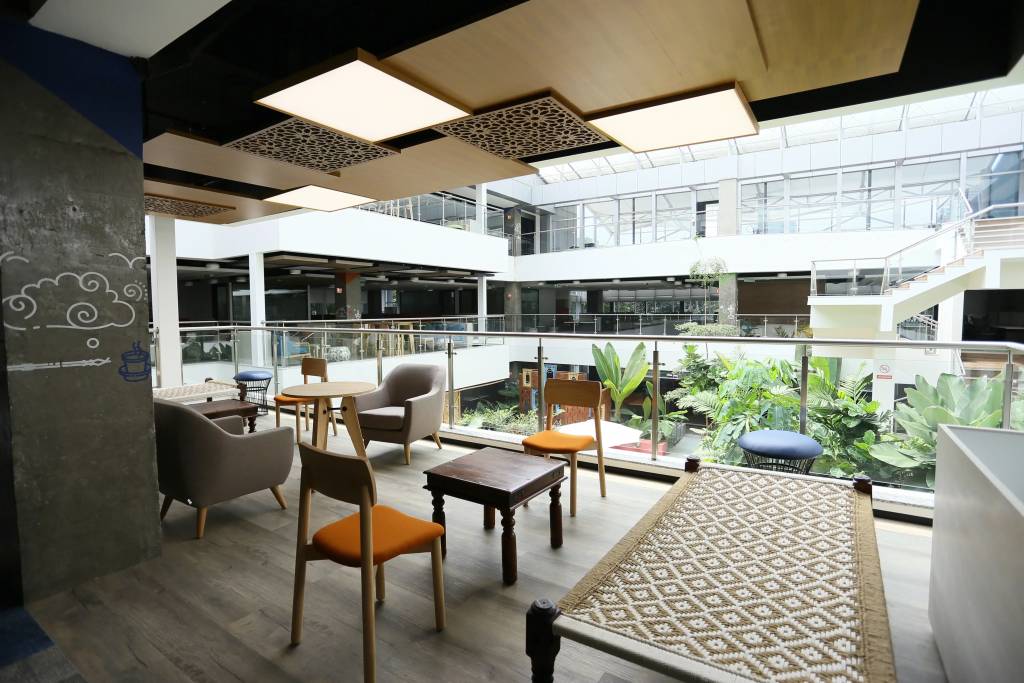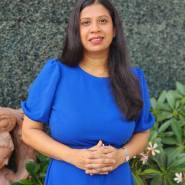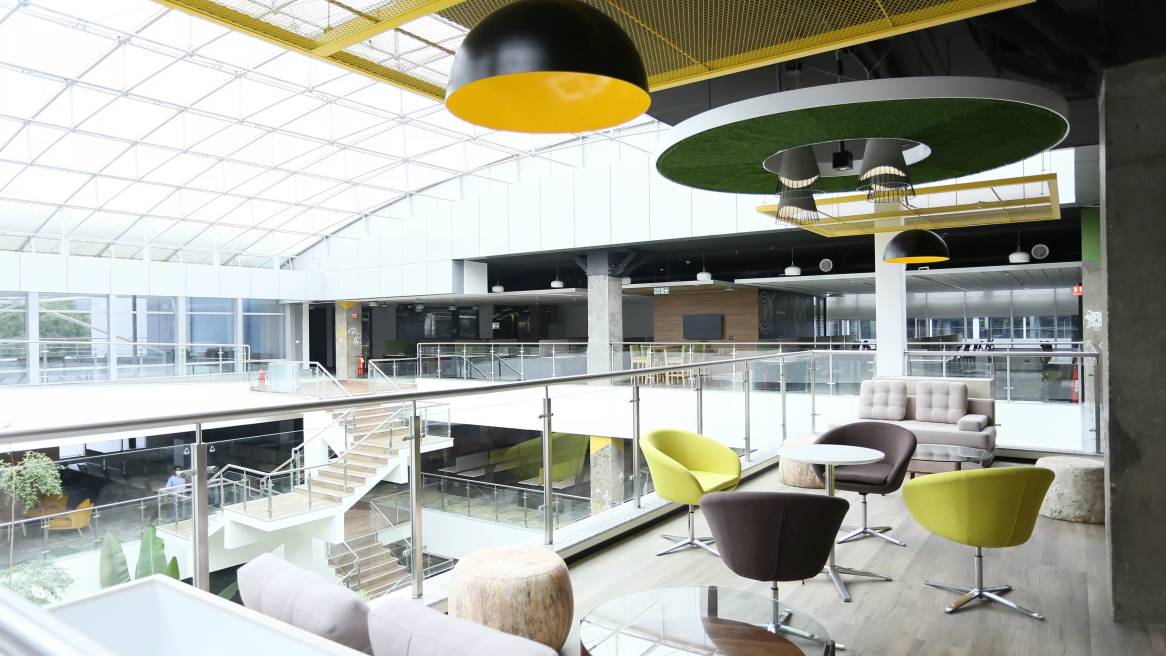SAP India Focuses in on Collaboration
Work can be done anywhere, but good collaboration requires flexibility + smart spaces.
SAP India is the fastest growing subsidiary of SAP SE, the world’s leading provider of business software solutions, and has a presence in 130 countries, including nine cities across India. Dr. Tracy Brower, vice president of workplace insights at Steelcase, recently had the chance to speak to Shweta Mohanty, SAP India vice president and head of human resources, to discover how the software giant addresses retention, connection and collaboration needs within the context of hybrid work.
Tracy Brower: As you think about the work experience, in what ways have your perspectives on it shifted recently?
Shweta Mohanty: The big shift happened with the pandemic and the fact that workplaces are changing – the way we need our employees to engage is changing. But the pandemic absolutely accelerated the pace of change. One big shift is thinking about the office in the traditional model – where everybody is coming into the office and that it’s the only place where you “get work done.” Increasingly, workplaces are being looked upon as a place to collaborate and network and build connections. Now, it’s all about flexibility. In fact, our latest pitch is that if you need to really get focused work done, you actually don’t need to come to the office – you might as well be at your home and work from there. But if you really want to connect with teams, the workplace is number one.
The way work gets done is also shifting. Everything is accelerated through digitalization – an onslaught of artificial intelligence, machine learning and automation require an increased focus on the need for efficiencies that we have to drive. What processes can be automated? Those types of questions are the largest part of what we need to answer going forward.
Lastly, employees themselves are experiencing fundamental shifts. Increasingly, you have to be somebody who has experience in multiple diverse fields, with the understanding that it’s only enriched if you show the ability to adapt. The pandemic has highlighted the importance of employee wellbeing and work-life balance. We recognized the need to support employees’ mental and physical health, creating initiatives such as hybrid work culture, wellness programs, and resources for managing stress. The emphasis on work-life integration and promoting a healthy work environment has become a crucial aspect of the modern work experience.
TB: Tell me what you’ve done to create a great employee work experience?
SM: We know people are coming to the office to collaborate, so we don’t expect them to sit in their closed offices completing their work. Coming to the office is about more collaboration spaces where the collaboration isn’t just happening on a call – it could be in a garden next to the office fountain. You can add whiteboards and in pretty much every corner of your campus, people now have an opportunity to just sit together, enjoy some sun, pick up a cup of coffee and get things done. Recognizing that employees come to the office primarily for collaboration, organizations are revamping their office environments. This involves creating open and flexible spaces that encourage interaction and teamwork. Incorporating collaborative areas, such as outdoor gardens or communal spaces, where employees can gather, brainstorm and work together fosters a sense of connectivity and promotes innovative thinking.
We’re also finding that experiences linked to purpose are important. At SAP, we’ve been doing a lot of great work around that because we believe inherently every person in the world connects to the larger good and people want to serve society with their different passions and purpose. For the longest period of time, we never thought that work is a place where we explore purpose and passion – but it is, because it’s the place where you connect and build bonds. We have been working on a lot of learning and training that is no longer about a cookie-cutter approach – where everything applies to everybody. We have recognized that a one-size-fits-all approach to learning and development is no longer effective. It must be customized so what applies to me can be completely different from your needs. We are shifting towards personalized training and development programs. Understanding individuals have diverse needs and aspirations, customized learning experiences tailored to individual preferences and career goals are being offered. With remote and hybrid work becoming more prevalent, leveraging technology for seamless collaboration and communication is essential. Implementing digital collaboration tools, project management platforms and virtual meeting spaces enables effective teamwork and ensures that employees can collaborate efficiently, regardless of their physical location.

TB: How do you foster purpose and passion?
SM: We help connect and support our employees through volunteer opportunities, from teaching children, to helping with flood relief – pretty much everything. We also have a ‘Purpose Summit,’ where different leaders come together to share their journeys and what their organizations are doing to inspire. We also have a “High Potential” program, which we also call a social sabbatical – where people who are top talent are encouraged to spend anywhere from one month to three months in a remote location to work in communities. Our commitment to those opportunities is very woven into the thread of the organization.
TB: How do you balance employee needs and business needs?
SM: You would be surprised to see that they actually do align. We have seen that when employees are happy and engaged, their productivity is higher. It’s not about longer hours, it’s about doing work that matters for us that has helped us in our retention rates significantly. We have never looked at dropping a program or avoiding a program for people only based on profitability.
When employees are connecting to the organization and respected for being themselves, they will have loyalty to the business and their productivity will be higher.
TB: What is HR’s role in fostering and nurturing all of these things?
SM: I believe this is one of the most exciting periods for HR professionals. That’s because the rule book and the templates that we have used for so many years are no longer applicable. It gives you an opportunity to reinvent and repurpose things. The good part is that every organization is looking at the bottom line – there is a crunch on budgets and resources. So it’s not that you have unlimited resources to do all kinds of things, but it’s during these times that the best innovation comes out.

As the head of Human Resources for SAP in India, Shweta Mohanty provides HR leadership across the region for all entities. She is responsible for designing and executing the people strategy as well as elevating people culture. Shweta has 20+ years of strong client facing experiences, working with organizations such as Microsoft and Wipro Ltd. Outside of the office, she enjoys catching up on non-fiction books, watching movies, and cooking for her two young daughters.


